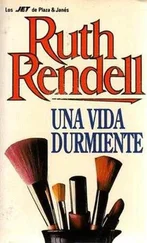“In the rank sweat,” remarked Jonathan, “of an enseamed bed.”
“Shut up and don’t be so disgusting.” She levelled at him a look of scorn, such as women often reserve for those friends of their husbands who may be thought to exercise a corrupting influence. For that Brian was her husband Anthony was sure even before he waved a feeble hand and said, “My wife, Vesta.”
She sat down. “Your wife, Vesta, wants a drink. G. and T., a big one.” She took a cigarette from her own packet and Dean one from his, but instead of holding out his lighter to her, he lit his own cigarette and put the lighter away. Turning her back on him, she struck a match and inhaled noisily. Anthony regarded her with interest. She seemed to be in her mid-thirties and she looked as if she had come out without attempting to remove the “rank sweat” of Jonathan Dean’s too graphic description. Her naturally dark hair was hennaed, and strands of the Medusa locks—it was as wild and unkempt as her husband’s but much longer—had a vermilion metallic glint. A greasy-skinned, rather battered-looking face. Thin lips. Large, red-brown, angry eyes. A smell of patchouli oil. Her dress was long and of dark dirty Indian cotton, hung with beads and chains and partly obscured by a fringed red shawl. When Brian brought her gin she clasped both hands round the glass and stared intensely into the liquid like a clairvoyant looking into a crystal.
Three more beers had also arrived. Jonathan, having directed several more insulting but this time ineffectual remarks at Vesta—remarks which seemed to gratify rather than annoy her husband—began to talk of Li-li Chan. What a “dish” she was. How he could understand those Empire builders who had deserted their pallid, dehydrated wives for oriental mistresses. Like little flowers they were. He hoped Anthony appreciated his luck in sharing a bathroom with Li-li. And so on. Anthony decided he had had enough of it for the time being. Years of living in hall and rooming houses and hostels had taught him the folly of making friends for the sake of making friends. Sooner or later the one or two you really want for your friends will turn up, and then you have the problem of ridding yourself of these stopgaps.
So when Brian began making plans for the evening, a mammoth pub crawl, he declined firmly. To his surprise, Jonathan also declined, he had some mysterious engagement, and Vesta too, suddenly becoming less zombie-like, said she was going out. Brian needn’t start asking why or who with and all that. She was free, wasn’t she? She hadn’t got married to be harassed all the time and in public.
Anthony felt a little sorry for Brian, whose spaniel face easily became forlorn. “Some other time,” he said, and he meant it.
The sun was shining and the whole afternoon lay ahead of him. Radclyffe Park, he thought, and when the K.12 bus came along he got on it. The park was large and hardly any of it was formally laid out. In a green space where the grass was dappled with the shadows of plane leaves, he sat down and reread Helen’s letter.
Darling Tony, I knew I’d miss you but I didn’t know how bad it would be. I feel like asking, whose idea was this? But I know we both came to it simultaneously and it’s the only way. Besides, neither of us is the sort of person who can be happy in a clandestine thing, an intrigue. Being discreet seems pointless to you, doesn’t it, a squalid bore, and as for me, I always hated lying to Roger. When you said—or was it I who said it?—that it must be all or nothing, I, you, we, were right .
But I can’t be very good at lying because I know Roger has sensed my defection. He has always been causelessly jealous but he never actually did things about it. Now he’s started phoning me at work two or three times a day and last week he opened two letters that came for me. One of them was from mother and the other was an invitation to a dress show, but I couldn’t get all upstage and affronted virtue with him. How could I? After all, I do have a lover, I have deceived him… .
A child, playing some distance off, gave his ball a massive kick so that it landed at Anthony’s feet. He bowled it back. Funny, how people thought it was only women who wanted to marry and have children of their own.
I remember all the things you taught me, principles on which to conduct one’s life. Applied Existentialism. I tell myself I am not responsible for any other adult person and that I am not in this world to live up to Roger’s expectations. But I married him, Tony. Didn’t I, in marrying him, go a long way towards promising to be responsible for his happiness? Didn’t I more or less say that he had a right to expect much from me? And he has had so little, poor Roger. I never even pretended to love him. I haven’t slept with him for six months. I only married him because he pressed me and pressed me and wouldn’t take my no… .
Anthony frowned when he came to that bit. He hated her weakness, her vacillations. There were whole areas of her soft, sensitive personality he didn’t begin to understand. But here was the Bunyan passage—that made sense.
So why don’t I just tell him and walk out?—Leap off the ladder even blindfold into eternity, sink or swim, come heaven, come hell … Fear, I suppose, and compassion . But sense that was too short-lived. It’s because at the moment compassion is stronger than passion that I’m here and you’re alone in London .… He folded the letter and put it back in his pocket. He wasn’t downcast, only rather lonely, more than rather bored. In the end she would come to him, her own feelings for him were too strong to be denied. There had been things between them she would remember in his absence, and that memory, that hope of renewal, would be stronger than any pity. In the meantime? He threw back the child’s ball once more, rolled over on his side on the warm dry grass and slept.
The tube took Anthony one stop back to Kenbourne Lane. At the station entrance a boy of about ten came up to him and asked him for a penny for the guy.
“In September? A bit premature, aren’t you?”
“Got to make an early start, mister,” said the boy, “or someone else’ll get my patch.”
Anthony laughed and gave him tenpence. “I don’t see any guy.”
“That’s what me and my friend are collecting for. To get one.”
The children, those in the park, and the two at the station, gave him an idea. A job for the evenings and the occasional weekend afternoon, a job for which he was admirably and thoroughly trained … It was six o’clock. He let himself into Room 2, wrote his letter, addressed an envelope and affixed a stamp to it. The whole operation took no more than ten minutes, but by the time it was done the room was so dark that he had to put the jellyfish light on. Emerging, he encountered Arthur Johnson in the hall, and Arthur Johnson was also holding a letter in his hand. Anthony would have passed him with no more than a smile and a “good evening,” but the “other” Johnson—or was that he?—turned, almost barring his passage, and fixed him with an intense, anxious, and almost hungry look.
“May I enquire if you are going out for the evening, Mr. Johnson, or merely to the post?”
“Just to the post,” Anthony said, surprised.
The hopeful light in the other man’s eyes seemed to die. And yet why should he care one way or the other? Perhaps, on the other hand, that was the answer he had wanted, for now he held out his hand, smiling with a kind of forced bonhomie, and said ingratiatingly:
“Then, since I am going there myself, let me have the pleasure of taking your letter.”
“Thanks,” Anthony said. “That’s nice of you.”
Arthur Johnson took the letter and, without another word, left the house, closing the front door silently and with painstaking care behind him.
Читать дальше











